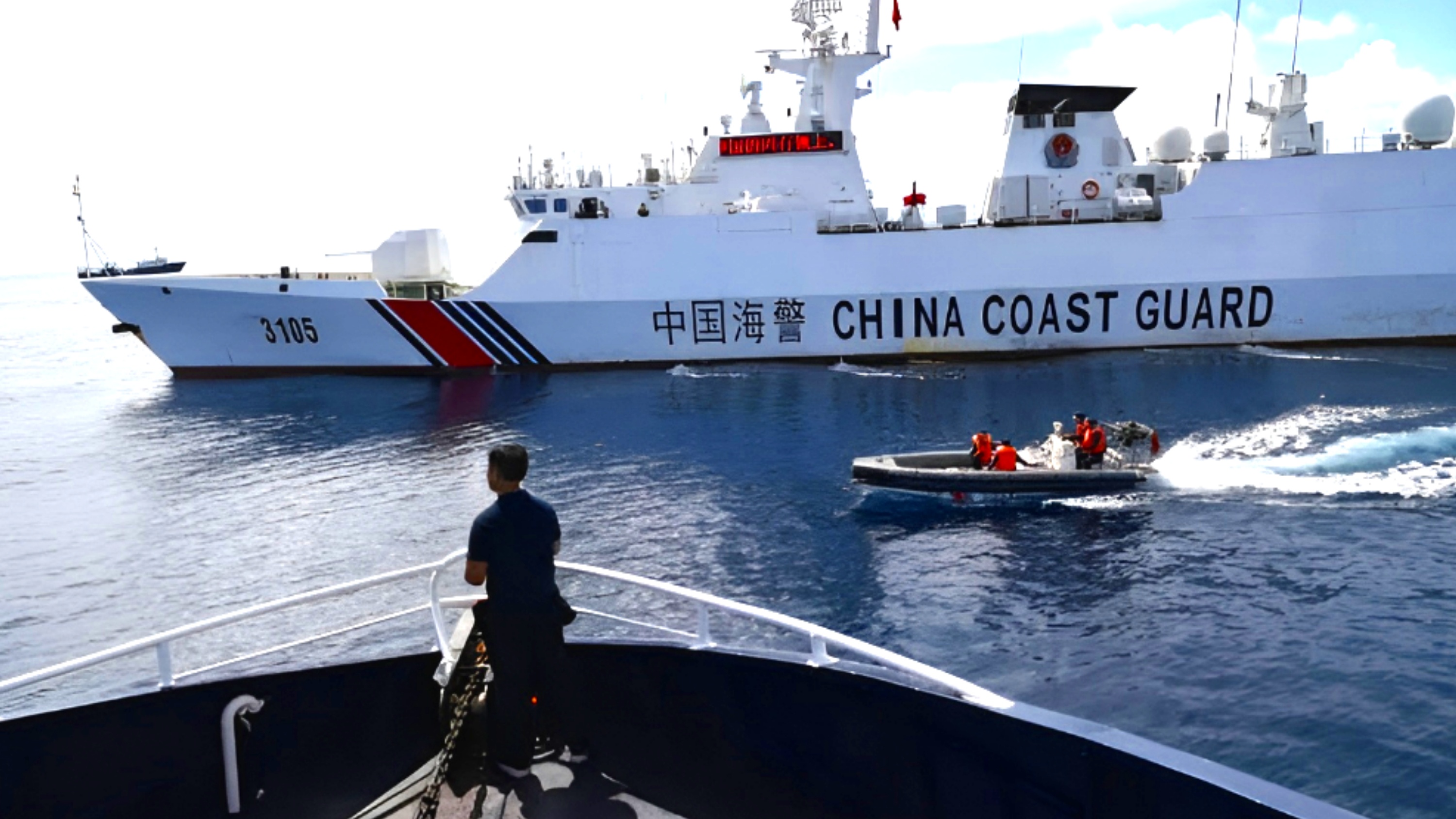Manila: The Philippines announced the suspension of a scientific survey in the South China Sea on Saturday after two of its fisheries vessels were subjected to "harassment" and aggressive maneuvers by China's coast guard and navy forces.
The incident underscores escalating tensions between Manila and Beijing over disputed waters in the South China Sea, a crucial trade route through which $3 trillion in commerce passes annually. China claims nearly the entire strategic waterway, a stance contested by the Philippines, Indonesia, Malaysia, and Vietnam.
According to the Philippine Coast Guard, two fisheries vessels were en route to collect sand samples from Sandy Cay, near the Philippine-occupied Thitu Island, on Friday. They were intercepted by three China Coast Guard ships, which engaged in "aggressive maneuvers" to block their path.
In a statement, China Coast Guard asserted that it has "indisputable sovereignty" over the Spratly Islands, including Sandy Cay—referred to by China as Tiexian Reef. Beijing claimed the Philippine vessels entered its waters without permission and attempted an "illegal" landing on the reef.
The Philippine Coast Guard described the incident as highly unsafe, reporting that four smaller boats from Chinese coast guard vessels "harassed" inflatable boats transporting personnel to Sandy Cay. Additionally, a Chinese navy helicopter hovered dangerously low over the watercraft.
As a result, the scientific survey was suspended due to "continuous harassment and disregard for safety exhibited by Chinese maritime forces," the Philippine Coast Guard said.
The incident comes just days after Manila and Beijing held talks on January 16, where both sides pledged to seek common ground and explore cooperation despite their disagreements over territorial claims.
An international arbitration tribunal ruled in 2016 that China's claims, based on its historic maps, lack legal basis under international law—a decision Beijing refuses to recognize.
This latest confrontation highlights the ongoing struggle for sovereignty in the region, raising concerns about safety and stability in one of the world's busiest waterways.








